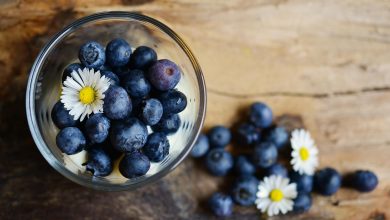
Headache, which is medically called “cephalgia”, can have many different causes. Sometimes consumption of various food items can trigger headaches. If you have a headache after consuming certain nutrients, you may need to have your blood sugar and blood pressure levels checked. You should also have yourself tested for food allergy.
While most of us occasionally experience throbbing pain in our head, the ongoing headache may be the result of life choices we make. This could be a sign of an underlying medical condition. Sleep deprivation, eye strain, stress, and prolonged use of certain medications are some of the common triggers. Some people may have a headache after eating certain nutrients. In addition, allergic reactions to certain foodstuffs may occur. If you have recurring headaches after eating sweet or savory foods, it may be a sign of an underlying medical condition.
Causes:
Why do some people experience headaches after eating? There may be various reasons for this situation. If a person consumes a nutrient that does not fit their system, the person may experience a sharp or throbbing pain. Some of the factors and medical conditions that can cause headaches after meals are given below.
-Food Allergy:
An allergic reaction is basically an immune system response that occurs when a substance that the immune system sees as a threat is consumed. As a result, immunoglobulin E (IgE) antibodies are released by the immune system. These antibodies activate cells called mast cells. These cells also secrete chemicals called histamine. This chemical causes allergic symptoms.
Symptoms of food allergy include urticaria, facial swelling, itching, wheezing, runny nose, abdominal pain, cramps, or dizziness. Sometimes an allergic reaction to a foodstuff can also trigger migraine headaches.
-Migraine:
Yogurt, buttermilk, sour cream and cheese are some of the foods that can trigger a headache attack. This is due to the presence of tyramine in these foods. Other foods that can trigger migraines include chocolate, banana, beef, chicken liver, pickled herring, soy sauce, or citrus fruits. Consumption of food additives can also trigger an attack.
Other symptoms that may be experienced during a migraine attack include nausea, vomiting, sensitivity to light, or dizziness. So if a particular food item causes a headache, you should avoid consuming this nutrient in the future.
Blood Sugar Levels:
Headaches can also occur due to fluctuations in blood sugar levels. People suffering from low blood sugar or hypoglycemia may experience discomfort when they consume foods high in sugar or sugar. When sugary foods are consumed, the sugar level in the blood rises suddenly. The body secretes insulin to bring blood sugar levels back to normal. This causes a sudden drop in blood sugar levels.
If there is not enough sugar to the brain, the body tries to increase the blood flow to the brain, which increases blood pressure. Blood vessels in the brain also contract and relax due to these fluctuations in blood sugar, which can cause a feeling of discomfort in the head and headache.
-High Blood Pressure:
Having a headache after consuming salty foods? If yes, you should have your blood pressure checked. Generally, people suffering from high blood pressure are recommended to follow a low salt diet. If your salt consumption is too high, your kidneys may not be able to control the salt you take and the excess salt may be mixed into your blood. When there is too much salt in the blood, this salt also draws water into the blood. This increases blood pressure and increases blood pressure.
If you have a headache after meals, you should get yourself checked. If your blood sugar and blood pressure are normal, the possible cause of your headache is food allergy. If you have a headache after a certain meal, definitely have a food allergy test. Avoid food items that you may be allergic to.





